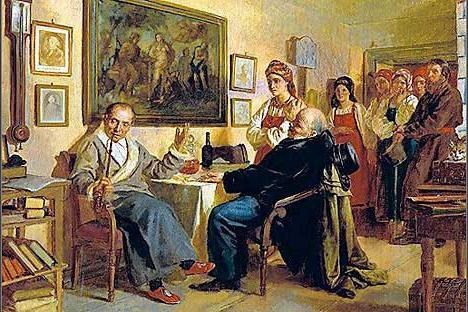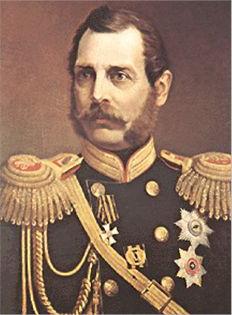The moment when serfdom was abolished is rightfully considered a turning point in the history of Russia. Despite the gradual progress of the reforms, they became a significant impetus to the development of the state. This date is not in vain given such significance. Everyone who considers himself an educated and competent person should remember in which year serfdom was abolished in Russia. After all, if not for the Manifesto, signed on February 19, 1861 , and freeing the peasants, we would today be living in a completely different state.

Serfdom in Russia was a peculiar form of slavery, spreading only to rural residents. This feudal system persisted in the country, striving to become capitalist, and significantly impeded its development. This became especially apparent after the Crimean War was lost in 1856 . According to many historians, the consequences of the defeat were not catastrophic. But they vividly showed the technical backwardness, the economic failure of the empire and the scope of the political crisis, which threatened to turn into a peasant revolution.
Who abolished serfdom? Naturally, under the Manifesto was the signature of Tsar Alexander II, who ruled at that time. But the haste with which the decision was made speaks of the compulsion of these measures. Alexander himself admitted: procrastination threatened that "the peasants would free themselves."

It should be noted that the question of the need for reforms in agriculture was raised repeatedly already in the early 1800s. The liberal-minded strata of the nobility spoke especially persistently about this. However, the answer to these calls was only a leisurely “study of the peasant question”, which covered the reluctance of tsarism to part with its usual foundations. But the widespread increase in exploitation led to the discontent of the peasants and numerous cases of escape from the landlords. At the same time, developing industry required workers in cities. There was also a need for a market for manufactured goods, and universal subsistence farming impeded its expansion. Revolutionary democratic ideas of N.G. Chernyshevsky and N.A. Dobrolyubova, the activities of secret societies.
The tsar and his advisers, when they abolished serfdom, showed political foresight, being able to find a compromise solution. On the one hand, the peasants received personal freedom and civil rights, albeit infringed. The threat of revolution has been delayed for a considerable period of time. Once again, Russia has received worldwide recognition as a progressive country with sensible rule. On the other hand, Alexander II was able to take into account the interests of the landlords and make them profitable for the state in the ongoing reforms.
Contrary to the opinion of educated nobles who analyzed European experience in comparison with Russian reality and presented numerous projects for future reforms, the peasants received personal freedom without land. The allotments that were given to them for use remained the property of the landowners until their complete redemption. For this period, the peasant was "temporarily obligated" and was forced to fulfill all previous duties. As a result, freedom became only a beautiful word, and the situation of “rural inhabitants” remained extremely difficult. In fact, when serfdom was abolished, one form of dependence on the landowner was replaced by another, in some cases even more burdensome.
Soon the state began to pay for the new "owners" the value of the allotted land, in fact, providing a loan at 6% per year for 49 years. Thanks to this "virtuous deed" for the land, the real value of which was about 500 million rubles, the treasury received about 3 billion.
The conditions of the reforms did not suit even the most initiative peasants. After all, ownership of allotments was transferred not to each individual farmer specifically, but to the community, which helped solve many financial problems, but became an obstacle for the enterprising. For example, peasants made taxes and redemption payments all over the world. As a result, they also had to pay for those members of the community who, for various reasons, could not do this.
These and many other nuances led to the fact that throughout Russia, starting in March 1861, when serfdom was abolished, peasant riots broke out. Their number in the provinces was estimated in thousands, only the most significant was about 160. However, the fears of those who expected the "new Pugachev region" did not materialize, and by the fall of that year the unrest subsided.
The decision to abolish serfdom played a huge role in the development of capitalism and industry in Russia. This reform was followed by others, including the judiciary, which largely removed the sharpness of the contradictions. However, the excessive compromise of the changes and a clear underestimation of the influence of the people's ideas led to the bombing of which Alexander II died on March 1, 1881, and the revolutions that turned the country over at the beginning of the 20th century.